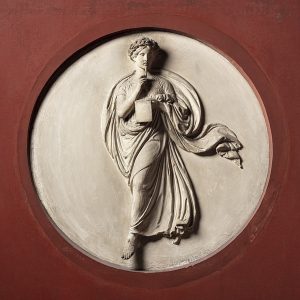
The word poetry derives from the Latin homograph word that translates the Greek poiesis noun deverbative of poieo, ‘I make, I believe, I compose’.
It is the activity by which a person brings into being something that did not previously exist in that form. It can mean either the single composition in metric, or the tradition in verse, or, cross-mathematically, a further characteristic of some texts which establishes a quality mark.
If we consider only its meaning in relation to writing in metric, the birth of poetry in the West coincides more or less with the consolidation of the same civilisation, that is, with Homer. Moments of fundamental codification would be Hellenism and the Renaissance. The nineteenth and twentieth centuries were to bring about a systematic deconstruction of the metrical rules of tradition, resulting in an extremely varied panorama that was difficult to define in terms of form and content.
Everything now seems poetic, and mastery of traditional metrics is no longer required to put together a composition. However, despite its apparent arbitrariness, poetry appears to those outside the profession as something conceptual, difficult to understand and hostile.
We are, however, faced with a paradox: although it enjoys a bad reputation, often generated by clumsy reminiscences of high school, poetry is still chosen by many as the vehicle for the expression of a varied range of feelings to which one would otherwise not know how to give form.
Particularly many, it seems, were the poems written by everyone from doctors to patients, from students to teachers, during the harshest months of the pandemic. But how can this be explained? Perhaps because expression in words that take on a further meaning from their selection and juxtaposition (because in its minimal form this is poetry) is the tool that best succeeds in transfiguring pain, suffering, tragedy into aesthetic and ethical beauty.
Another aspect of the use of poetry in the medical field is that of poetry that cures. Often, in fact, reading a text that has already transmuted experiences and emotions into sweet words allows a communion of feelings that soothes and affects the reader’s state of mind. So there is a poem that comforts, a poem that gives courage and a poem that simply does not make one feel lonely. The power of the poetic word acts on us with an ever-living force, as it did in Homer’s time, as it does today.
Please leave us a word for your feeling of poetry.

Interesting how Poeisis is identical to the Indonesian word Puisi.
Thank You